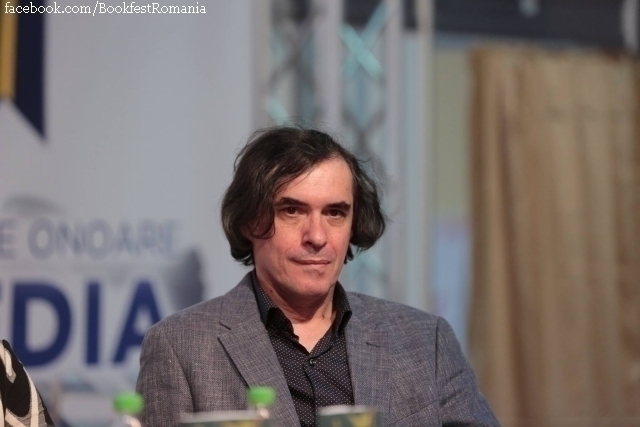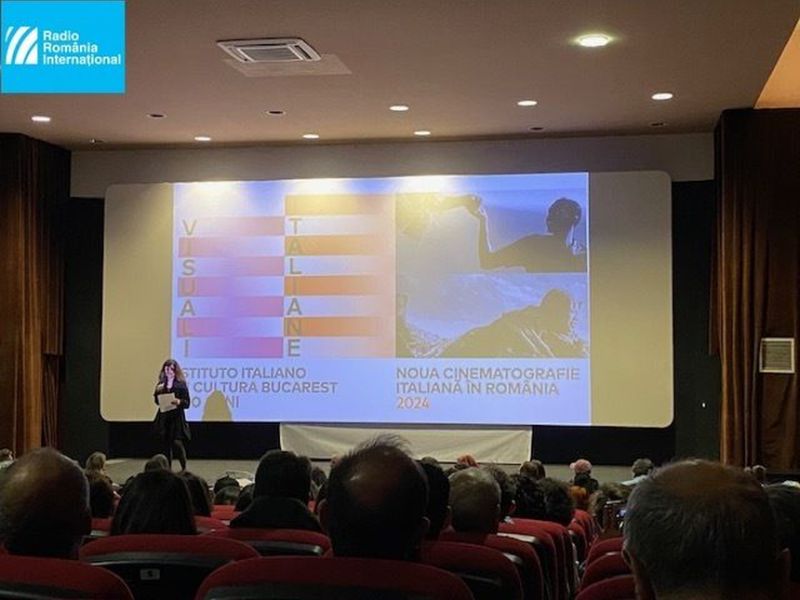International Book-fair Bookfest
A look at some the most successful Bookfest launches

Christine Leșcu, 08.07.2017, 14:00
“Landscape after hysteria by Mircea Cartarescu and “Why is Romania different? a volume coordinated by Vintila Mihailescu are among the most successful volumes launched at the International Book-fair, Bookfest.
Mircea Cartarescu, one of the most appreciated Romanian writers and a Nobel prize favourite, hits the limelight again two years upon the launch of his novel Solenoid, with another volume of social-political articles printed by Humanitas publishing house.
“Landscape after hysteria is a compilation of journalistic texts that have been published in the past ten years. They entail a general ethical and civic significance in spite of being taken out of their political context. But lets find out more about this volume from the author himself.
Mircea Cartarescu: “Ive always regretted my decision to get into social-political writing. Actually I started writing for a living shortly after I got married because I needed money. I also did it out of some sort of a complex because many of my colleagues had already been into publishing in late 1990s. They would be boldly telling their opinions standing up tot a system and the government in power at that time, whereas I preferred living in my ivory tower. This attitude of mine attracted a lot of flak and I got blamed for being insensitive and impervious to things that otherwise should have impressed me. That prompted me to take up social-political writing but the huge burden I felt at first eventually and gradually turned into some sort of curiosity. Colour me curios but I am interested in a great deal of things. For instance, I spent almost a year with the mystery of a Malaysia plane whose wreckage hasnt been found even today. All of a sudden curiosity gets the best of me and try to figure out what actually happened. And the same went with the social-political writing, because back in the time of the communist regime and after it I went completely apolitical. Then I suddenly got the urge to know what happened in that area as well.
“A true writer assimilates human suffering of any kind and tries to turn it, as if by alchemy, into beauty. Not transient and futile beauty, but the kind of beauty that saves the world, as Dostoyevsky put it. As an intellectual, the writer can become involved politically, socially and morally in the life of the community and may be, in fact should be, a mouthpiece for that good and truth and a fighter against the demons that have haunted and will forever haunt the human being. As an artist, however, the purpose of the writer is to forge beauty out of all this. If a writer fails to produce quality work, his or her civic courage will not be as close to the soul of his or her readers, writes Mircea Cartarescu.
“Why is Romania different?, historian Lucian Boia used to wonder in 2013 in a well-known essay that sparked a lot of controversy in intellectual circles. This question gave rise to this book coordinated by Vintila Mihailescu and published by Polirom. Born at first as a response to Lucian Boias work, this book goes beyond more or less ephemeral controversies. The outcome is that, motivated by a principled and strategic reticence vis-à-vis the public phenomenon of Romanian exceptionalism, a number of anthropologists, sociologists, political commentators, historians, university professors and researchers try to provide an answer to the question “Why is Romania the way it is?.
Vintila Mihailescu: “ If I were to talk about the stakes here, I would say that it all stems in discontent. And I dont think Im mistaken if I speak in the name of al the authors who contributed to making it. Its an intellectual dissatisfaction, but also a citizens one, in the sense that its the civic responsibility that an intellectual should have towards a certain type of exceptionalist discourse, but in a nihilistic version. Which could be translated as: “We cannot do or change anything, whatever we may do, we are different from all the others. This means that if, for instance, we talk with a taxi driver, no matter the situation, the answer would be ‘this is how Romanians are. This sentence-like conclusion has turned into a permanent state of mind and a foundation for all our actions, be they cultural or political, and that, I think, is bad. From this perspective, this type of discourse, which promotes an aggressive and negative type of exceptionalism, starts to gain ground, and it has become rather dominant in the public discourse. And its not ok that professors and intellectuals in general support this urban myth.





























